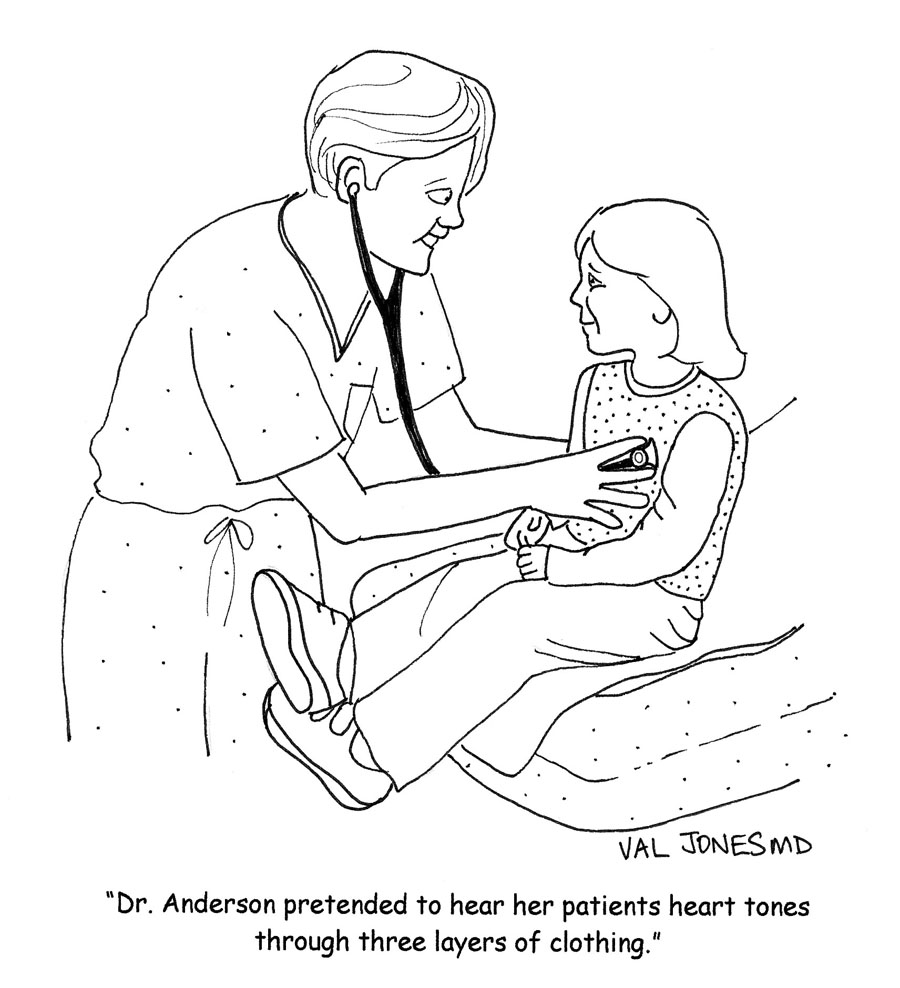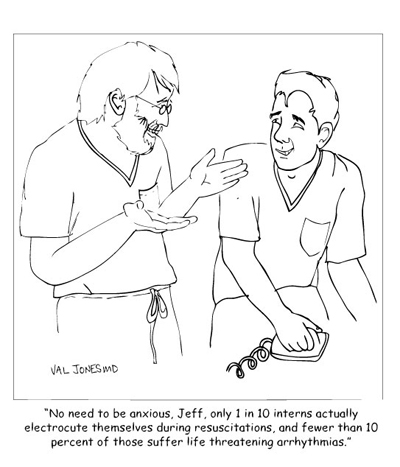June 4th, 2009 by Jerome Ecker, M.D. in Better Health Network, Health Tips
2 Comments »

Aspirin? – Yes, I should take that to prevent heart attack and stroke, right??
Well……perhaps. A new study (called a meta-analysis), the largest comparative trial of its kind, shows that being overzealous about aspirin use for prevention of initial heart attack and stroke may be unsubstantiated.
Specifically 95,000 subjects were evaluated, producing 1671 vascular events in the aspirin group and 1883 in the control group. Aspirin was associated with an absolute reduction of 0.06% heart-related events per year. Correspondingly, aspirin did not significantly reduce ischemic stroke risk, but researchers noted a borderline-significant increase in hemorrhagic stroke. Aspirin also increased the incidence of bleeding outside the brain. Overall, aspirin was not associated with a significant reduction in vascular death.
What does it mean? The advantages of aspirin in low risk patients are scant. As cardiovascular risk factors (like smoking, high cholesterol, high blood pressure, diabetes, family history of early stroke/heart attack) pile up, aspirin gains a bit more support, though there is a modest associated bleeding risk.
We will be following this data and it’s analysis further. In the meantime, it may be reasonable to discuss things with your doctor, or perhaps cut aspirin dosing to the appropriate lowest dose (81mg in most patients).
Want the original?
See Collins R et al. for the Antithrombotic Trialists’ (ATT) Collaboration. Aspirin in the primary and secondary prevention of vascular disease: Collaborative meta-analysis of individual participant data from randomised trials. Lancet 2009 May 30; 373:1849. We will post the appropriate links after publication to make it easier.
*This blog post was originally published at eDocAmerica*
May 29th, 2009 by DrWes in Better Health Network
No Comments »
There are some things that Electronic Medical Records do well and there are some things that Electronic Medical Records do poorly. To say that I need Electronic Medical Records to help me type is nothing short of ridiculous. Unfortunately, when engineers meet computer programmers and try to help health care professionals type in the health care record in the name of “safety,” the results can torment those they’re trying to help.
Take auto-spelling, for instance. I have the nasty habit of typing “Lungs: Claer to A&P” and marvel at the auto-correction feature automatically correcting my typing to “Lungs: Clear to A&P.” This is an example of the wonders of electronics.
But when I type “DC Cardioversion” and the computer won’t left me type “DC” because it wants to know if I mean “discharge” or “discontinue,” the computer becomes intrusive, obstructive, and performs a service that should be right up there with water-boarding. I mean, is someone really going to mistaken that I mean “Discontinue cardioversion” or “Discharge cardioversion” when I’m typing my operative report? I could see this being a problem in the order-entry portion of the software, but when I’m typing by progress note or operative note?
Please.
Even better are the wonderfully useful letters “MS.” These might mean “magnesium sulfate,” “mental status,” mitral stenosis, “MS Contin,” “multiple sclerosis,” “musculoskeletal,” “Ms.,” or maybe even “Mississipi.” So, instead of being able to type a logical sentence without interruption, the doctor finds that that a drop-down pick list prevents those magic letters from being typed. It seems the chance that a nurse will wonder if you’re prescribing a drug in a southern state trumps the ability to enter a simple sentence on the computer. This is, after all, how we’re preventing medical errors.
But I wonder if these computer engineering road blocks are doing something much more insidious and detrimental to our health care delivery of tomorrow: like devaluing independent thought, reason, permitting the subtleties of context, and common sense.
No, better to torment instead.
April 4th, 2009 by Dr. Val Jones in Book Reviews
No Comments »
Triumph of the Heart, as its name does not suggest, is about science. The book’s author, Jie Jack Li, is a medicinal chemist who meticulously reviews the history relevant to the discovery of lipid-lowering drugs. He spares no details, even recounting the amusing quarrels and quirks of the scientists engaged in the “apocryphal showdowns” leading to the manufacture of cholesterol in a laboratory.
The personalities of the various scientists and Nobel laureates described in the book are highly entertaining. From beating one another with umbrellas, to insisting on wearing blue clothing only, to egos so large and unappealing as to empty an entire academic center of all its promising young recruits, one has the distinct impression that brilliance does not go hand-in-hand with grace.
That being said, each of these scientists did seem to share a common approach to research: carefully testing hypotheses, repeating peer study results to confirm them, and patiently exploring complex biochemical pathways over periods of decades. The physicians, physicists, and chemists showed an incredible ability to doggedly pursue answers to specific questions – understanding that the results might influence human health. But even more importantly, they were each willing to invest their careers in analysis that may never lead to anything more than a dead end. In fact, the book is full of examples of great ideas, developed over decades, that did not lead to a marketable drug. In some cases the research was halted due to lack of efficacy, in others political forces or personal whims influenced the course.
What strikes me about the scientists described in Triumph of the Heart, is how rare it is nowadays for people to have the sort of patience required for laboratory work. In an age where kids suffer from iPhone and video game addictions, young adults expect a relaxed work environment with high salaries and no accountability, and adults are flummoxed by stores that are not open 24 hours… who has time for the hard work of science? Even The Onion, my favorite spoof newspaper, mocks modern attention spans calling science “hard.”
Triumph of the Heart is about much more than the discovery and development of statins. It traces the historical development of the first antibiotics, pain medicines, diuretics, and steroids, the rise, fall and merger of drug companies, patent wars, the unethical conduct of some researchers, and the financial pressures that shaped the industry, both in the U.S. and abroad. Other than Mr. Li’s inability to resist his chemist’s urge to delve into advanced concepts in organic chemistry (around mid-book) as a physician I found Triumph of the Heart to be quite interesting, and well researched.
The most important take away, however, is that science is about hard work, attention to detail, innovative thinking, advanced analytic skills, serendipity, and the patience of Job. Triumph of the Heart reminds us all what good science is about, and how life-saving discoveries are made.













